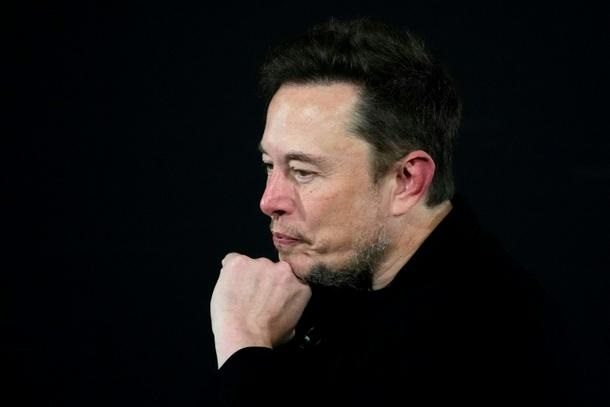Elon Musk’s visit to Auschwitz and his upcoming address on anti-Semitism online in Poland has garnered significant attention. The Tesla CEO and SpaceX founder made a private visit to the former death camp alongside Rabbi Menachem Margolin, the chairman of the European Jewish Association (EJA). During the visit, Musk laid a wreath and participated in a memorial service, with photos showing him at the site with his son on his shoulders.
This visit comes just weeks after Musk sparked controversy by endorsing an anti-Jewish conspiracy theory on his social media platform, X (formerly Twitter). Musk faced backlash for his response to a post, with critics arguing that it echoed a conspiracy theory embraced by White supremacists. Advertisers even paused their ads on the platform in response. Musk apologized for his comments in November, acknowledging the need for greater sensitivity and understanding.
In addition to the visit, Musk and US right-wing political commentator Ben Shapiro were scheduled to speak at a conference hosted by the EJA. The conference aims to address the rising issue of anti-Semitism online and find solutions to combat it. The EJA noted that there has been a significant increase in anti-Semitism in Europe, particularly since the Israel-Hamas war. The symposium takes place just before the 79th anniversary of the liberation of Auschwitz on January 27, which is observed as Holocaust Memorial Day.
Auschwitz, built by Nazi Germany in occupied Poland between 1940 and 1945, was the site where approximately one million European Jews lost their lives, along with over 100,000 non-Jews. The visit by Elon Musk to this historic site highlights the importance of remembering and learning from the atrocities of the past.
Musk’s involvement in addressing anti-Semitism online is significant given his recent acquisition of X and the accusations of hate speech proliferating on the platform. The tech tycoon’s $44-billion takeover of X in October 2022 has sparked concerns about the platform’s content moderation and the spread of harmful ideologies.
The conference in Krakow, attended by senior political figures from European countries, provides an opportunity to discuss and find solutions to the rising tide of anti-Semitism. It is a crucial step towards combating hate speech and fostering a more inclusive online environment.
Elon Musk’s visit to Auschwitz and his commitment to addressing anti-Semitism online in Poland demonstrate a willingness to confront and learn from the past while working towards a more inclusive future. By using his platform and influence, Musk has the potential to make a significant impact in combating hate speech and promoting understanding and tolerance.
During a live discussion on X in September, Rabbi Menachem Margolin invited Elon Musk to visit Auschwitz, emphasizing the impact it would have on Holocaust awareness and the fight against anti-Semitism. Musk, describing himself as “aspirationally Jewish” and having attended Hebrew pre-school, agreed that it could be a powerful statement and example for others. He stated that it was absurd to accuse him of anti-Semitism, as his entire life story was pro-Semitic.
Musk has been involved in legal battles surrounding the issue of hate speech on X. He has threatened to sue the Anti-Defamation League over their claims that problematic and racist speech has increased on the platform since his takeover. X Corp is also suing non-profit Media Matters for allegedly portraying the site as filled with anti-Semitic content, which they argue has driven away advertisers.
In November, Musk endorsed a post on X that claimed Jewish communities advocated a “dialectical hatred against whites.” This sparked a wave of major advertisers leaving the platform, and the White House condemned Musk for promoting anti-Semitism. Musk later apologized, calling it the worst and dumbest post he had ever made. He clarified that it had been misinterpreted and attempted to provide further explanation in subsequent posts.
Following the controversy, Musk visited Israel, although he stated that the trip had been planned prior to the incident and was not an “apology tour.” President Isaac Herzog of Israel acknowledged the role that Musk could play in combating anti-Semitism, urging him to take action on the platforms he leads. Herzog expressed concern about the presence of anti-Semitism on these platforms and emphasized the need to fight against it together.
Elon Musk’s visit to Auschwitz and his commitment to addressing anti-Semitism online demonstrate his willingness to confront the issue and contribute to raising awareness. Despite the controversies surrounding his involvement with X and the accusations of hate speech, Musk’s actions indicate a desire to combat anti-Semitism and create a more inclusive online environment. The symposium in Krakow, attended by political figures and experts, provides a platform for discussions on finding solutions to the rising trend of anti-Semitism in Europe. Through these efforts, there is hope for progress in combating hate speech and promoting understanding and tolerance.













































